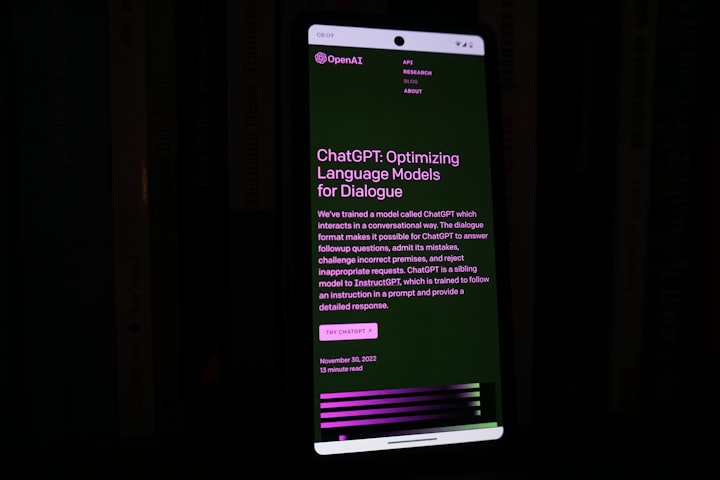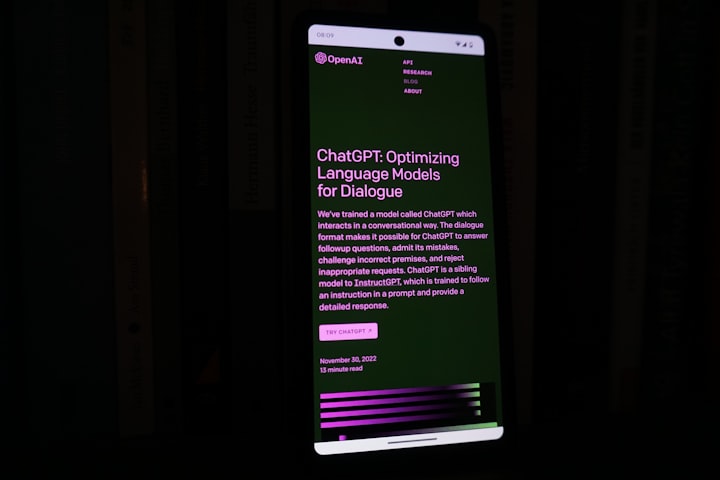
Table of Content
- I. Introduction
- A. Definition of ChatGPT
- B. Importance of ChatGPT in the future
- C. Thesis statement
- II. Overview of ChatGPT
- A. Brief history of ChatGPT
- B. How ChatGPT works
- C. Advantages of ChatGPT
- III. Applications of ChatGPT in the Future
- A. Customer Service
- B. Healthcare
- C. Education
- D. Entertainment
- E. Business
- IV. Challenges of ChatGPT in the Future
- A. Privacy concerns
- B. Ethics
- C. Bias and discrimination
- V. Future Developments of ChatGPT
- A. Advancements in Natural Language Processing
- B. Improving the accuracy of responses
- C. Integrating ChatGPT with other technologies
- VI. Impact of ChatGPT in the Future
- A. Changes in the workforce
- B. Changes in human behavior
- C. Impact on society and culture
- VII. Conclusion
- A. Recap of main points
- B. Final thoughts on the future of ChatGPT.
I. Introduction
A. Definition of ChatGPT:
ChatGPT is a language model developed by OpenAI that can generate human-like responses to natural language inputs.
B. Importance of ChatGPT in the future:
ChatGPT has the potential to revolutionize the way we communicate with technology, making it more natural and intuitive.
C. Thesis statement: ChatGPT is poised to play a significant role in the future of communication and technology.
II. Overview of ChatGPT
A. Brief history of ChatGPT: ChatGPT is part of the GPT (Generative Pre-trained Transformer) family of models developed by OpenAI. It was first introduced in 2019 and has since undergone several improvements and updates.
B. How ChatGPT works: ChatGPT is trained on a large dataset of text, which it uses to generate responses to natural language inputs. It uses deep learning algorithms and natural language processing techniques to understand the context and generate appropriate responses.
C. Advantages of ChatGPT: ChatGPT has several advantages, including its ability to generate natural-sounding responses, its adaptability to different domains and topics, and its potential for scalability.
III. Applications of ChatGPT in the Future
A. Customer Service: ChatGPT can be used to improve customer service by providing personalized and efficient responses to customer queries and complaints.
B. Healthcare: ChatGPT can be used in healthcare to provide virtual consultations and personalized medical advice.
C. Education: ChatGPT can be used to provide personalized learning experiences and assist teachers in creating customized lesson plans.
D. Entertainment: ChatGPT can be used to create engaging and interactive experiences in the entertainment industry, such as chatbots for virtual assistants and video games.
E. Business: ChatGPT can be used in various business applications, such as chatbots for customer support, virtual assistants for employees, and automated content creation.
IV. Challenges of ChatGPT in the Future
A. Privacy concerns: ChatGPT raises privacy concerns due to its potential for collecting and storing sensitive information.
B. Ethics: ChatGPT raises ethical concerns related to its potential for creating fake news and misinformation.
C. Bias and discrimination: ChatGPT can perpetuate biases and discrimination present in the data it is trained on, leading to biased or discriminatory responses.
V. Future Developments of ChatGPT
A. Advancements in Natural Language Processing: ChatGPT is likely to benefit from advancements in natural language processing, leading to better performance and accuracy.
B. Improving the accuracy of responses: ChatGPT can be improved by increasing the accuracy of its responses and reducing errors and inconsistencies.
C. Integrating ChatGPT with other technologies: ChatGPT can be integrated with other technologies, such as voice recognition and machine vision, to create more comprehensive and immersive experiences.
VI. Impact of ChatGPT in the Future
A. Changes in the workforce: ChatGPT is likely to lead to changes in the workforce, particularly in industries such as customer service and content creation.
B. Changes in human behavior: ChatGPT is likely to change human behavior by making communication with technology more natural and intuitive.
C. Impact on society and culture: ChatGPT is likely to have a significant impact on society and culture, particularly in areas such as communication, entertainment, and education.
VII. Conclusion
A. Recap of main points: ChatGPT is a language model developed by OpenAI that has the potential to revolutionize communication and technology. It has several advantages and applications, but also raises challenges related to privacy, ethics, and bias.
B. Final thoughts on the future of ChatGPT: ChatGPT is an exciting development that is likely to play a significant role in the future of communication
About the Creator
CRICKET ONLY
Cricket Related News And Posts.
- Cricket updates of upcoming International, domestic and T20 matches.
- Catch all the latest news about cricket on Cricket Only.






Comments
There are no comments for this story
Be the first to respond and start the conversation.